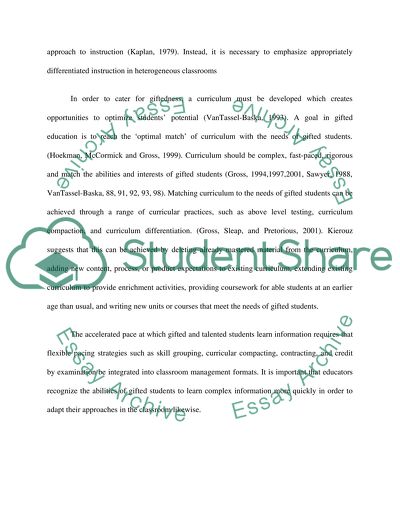Why it is important to differentiate the curriculum for gifted Essay. Retrieved from https://studentshare.org/miscellaneous/1535305-why-it-is-important-to-differentiate-the-curriculum-for-gifted-learners-in-schools
Why It Is Important to Differentiate the Curriculum for Gifted Essay. https://studentshare.org/miscellaneous/1535305-why-it-is-important-to-differentiate-the-curriculum-for-gifted-learners-in-schools.


